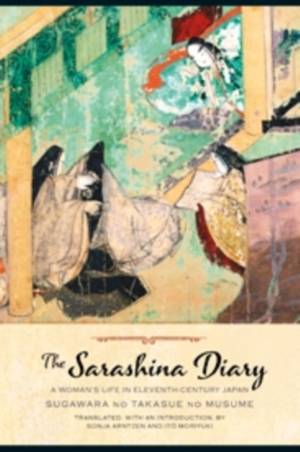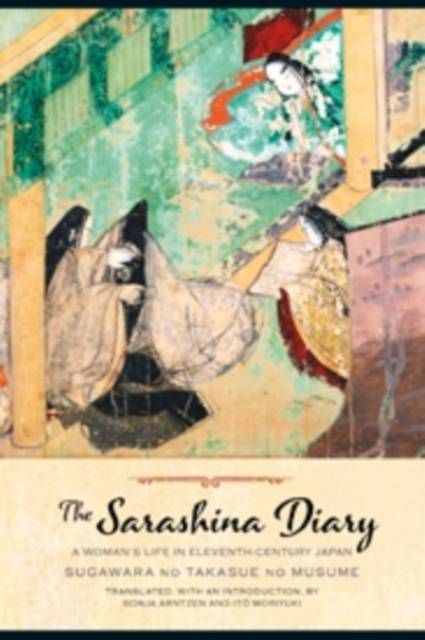
- Retrait gratuit dans votre magasin Club
- 7.000.000 titres dans notre catalogue
- Payer en toute sécurité
- Toujours un magasin près de chez vous
- Retrait gratuit dans votre magasin Club
- 7.000.000 titres dans notre catalogue
- Payer en toute sécurité
- Toujours un magasin près de chez vous
The Sarashina Diary
A Woman's Life in Eleventh-Century Japan
Sugawara No Takasue No Musume Sugawara No Takasue No Musume
84,95 €
+ 169 points
Description
A thousand years ago, a young Japanese girl embarked on a journey from the wild East Country to the capital. She began a diary that she would continue to write for the next forty years and compile later in life, bringing lasting prestige to her family.
Some aspects of the author's life and text seem curiously modern. She married at age thirty-three and identified herself as a reader and writer more than as a wife and mother. Enthralled by romantic fiction, she wrote extensively about the disillusioning blows that reality can deal to fantasy. The Sarashina Diary is a portrait of the writer as reader and an exploration of the power of reading to shape one's expectations and aspirations. As a person and an author, this writer presages the medieval era in Japan with her deep concern for Buddhist belief and practice. Her narrative's main thread follows a trajectory from youthful infatuation with romantic fantasy to the disillusionment of age and concern for the afterlife; yet, at the same time, many passages erase the dichotomy between literary illusion and spiritual truth. This new translation captures the lyrical richness of the original text while revealing its subtle structure and ironic meaning. The introduction highlights the poetry in the Sarashina Diary and the juxtaposition of poetic passages and narrative prose, which brings meta-meanings into play. The translators' commentary offers insight into the author's family and world, as well as the fascinating textual legacy of her work.Spécifications
Parties prenantes
- Auteur(s) :
- Editeur:
Contenu
- Nombre de pages :
- 264
- Langue:
- Anglais
- Collection :
Caractéristiques
- EAN:
- 9780231167185
- Date de parution :
- 22-07-14
- Format:
- Livre relié
- Format numérique:
- Genaaid
- Dimensions :
- 152 mm x 229 mm
- Poids :
- 498 g







